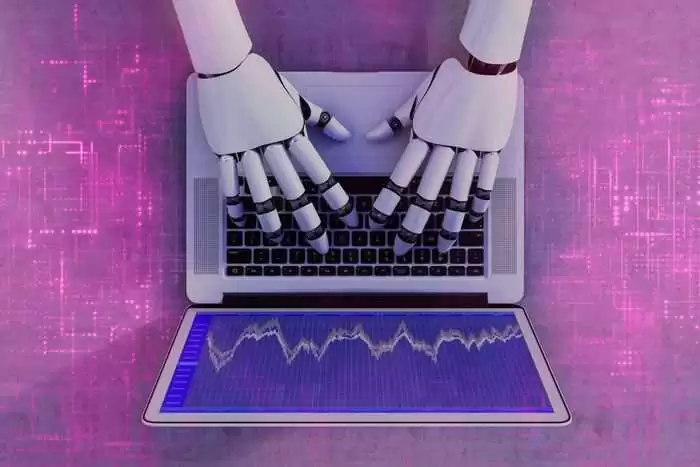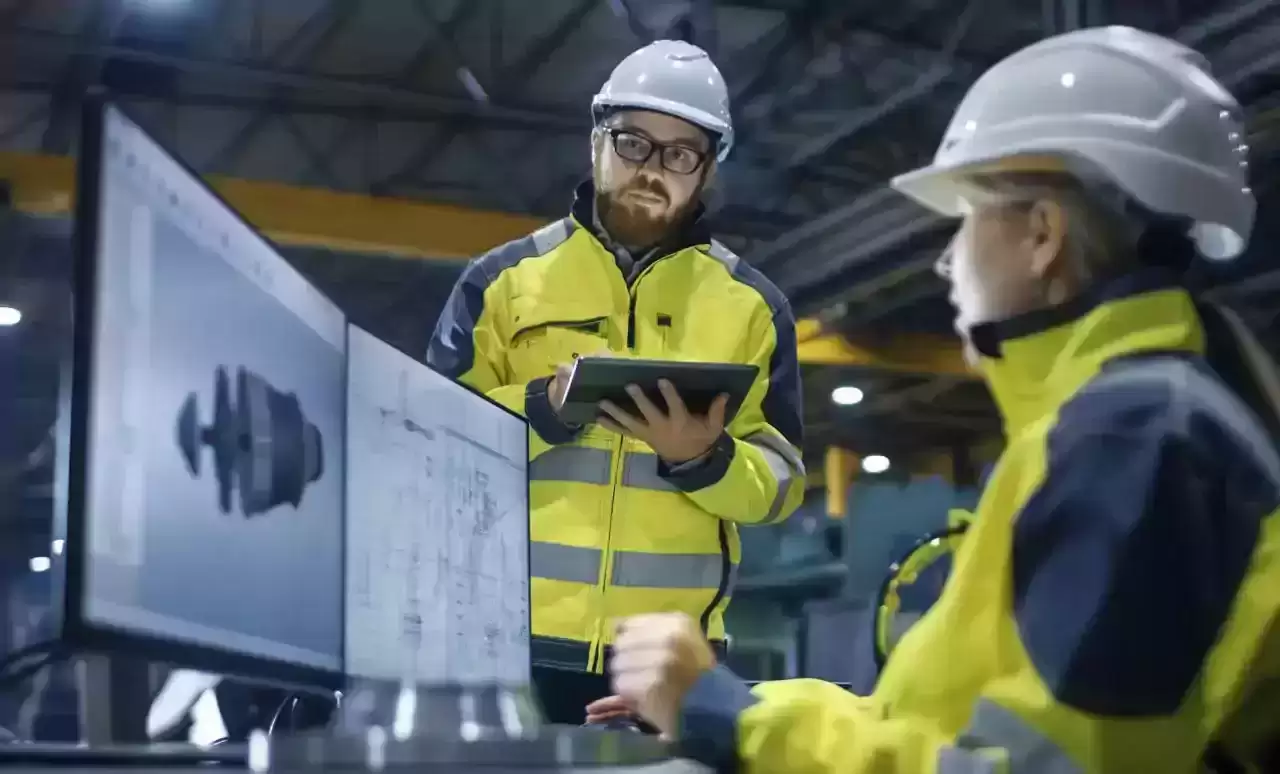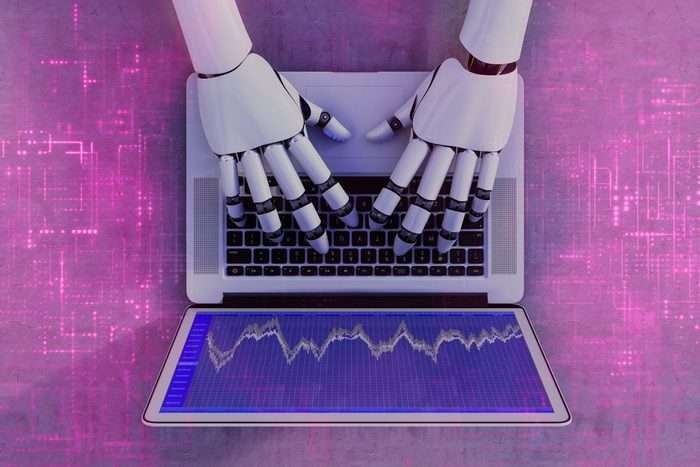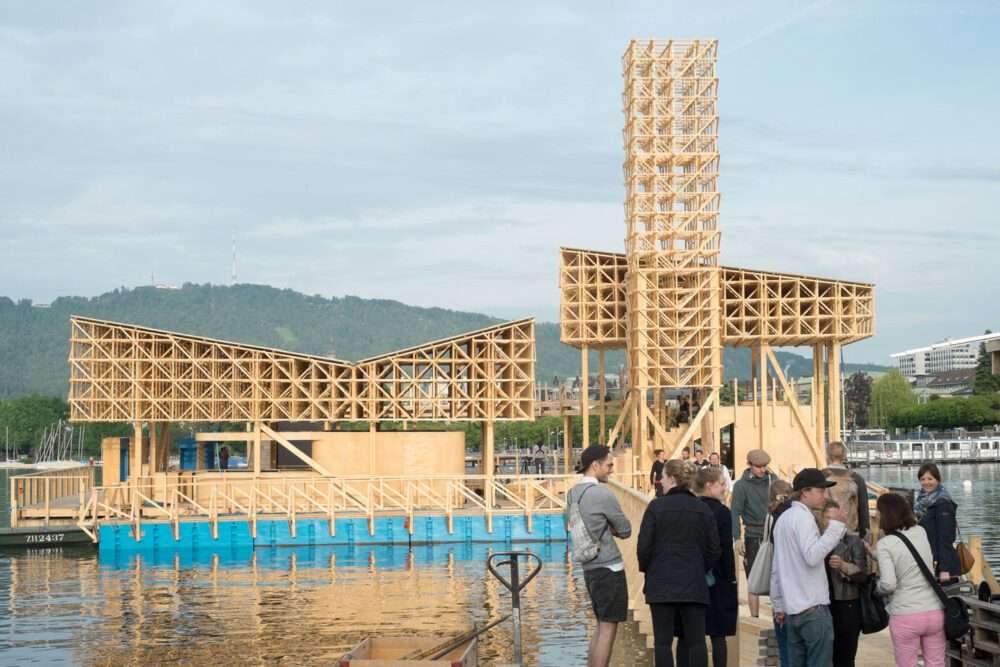Intelligent construction and the use of artificial intelligence to build efficiently
Artificial intelligence (AI) is often used to evoke images of futuristic machines seen in science fiction movies.
However, in recent times, AI is being widely used in powering digital assistants such as Google Assistant, Alexa, and Siri.
Where users benefit from its advantages directly through their smartphones.
Technology has certainly made our daily lives easier.
Artificial intelligence is also now making its way into a variety of sectors, promising lucrative business applications.
The construction industry is one of the major industries that have benefited greatly from artificial intelligence.
Artificial intelligence in the construction industry allows companies to become more profitable and improve project quality and safety.

To meet the industry’s current challenges, construction companies must streamline their operations.
Low profitability, time overruns, financing issues, and safety concerns are major problems faced by the industry.
It has now been unanimously recognized that digitization is the only way to go.
Companies that enhance their technology will gain a significant competitive advantage over other companies.
The construction industry can also use AI to address current problems and avoid mistakes made in the past.
And AI can help the construction industry in many different ways.
When it comes to smart building, there is no better way than to integrate artificial intelligence into the industry.
This article will shed light on how artificial intelligence can greatly help the construction industry reach its full potential.

1. AI-powered insights enhance the project design process
The build design process is currently outdated.
As a result, the construction process slows down. Builders and contractors can use AI in the design phase to obtain information from existing construction data,
material data and data collected from the environment, for example, to figure out the best way to design and develop a project.

2. Project management workflow with AI eliminates time-consuming activities
The construction process suffers from tedious and time consuming activities.
The project manager is responsible for organizing the project, assigning work,
and maintaining personnel records.
These tasks are often done manually, wasting time and money.
AI is able to perform all of these routine tasks with minimal or no errors.
Another application of artificial intelligence is the automation of task delegation.
The AI system will automatically delegate tasks to employees based on their experience,
capabilities and availability using data collected from them.
This simplifies the process and encourages workers to focus on their area of expertise.

3. The best way to collect and analyze data from the job site
Performing 3D surveys of construction sites with AI construction equipment simplifies workflows.
3D scans and other information can be fed into a deep neural network, which ranks the progress of different aspects of a project.
This allows the management team to address minor issues before they escalate into critical issues.
In the future, algorithms will evaluate infinite alternatives and alternatives based on similar projects using ‘reinforcement learning’.
It is an artificial intelligence technology that allows algorithms to learn by trial and error.
4. AI-assisted vehicles improve productivity
Some companies have begun to bring to the market self-driving construction machines that can more effectively carry out repetitive tasks such as digging, welding, pouring concrete, bricks and demolition.
With the help of a human programmer, these bulldozers can plan the job site with precise dimensions.
This not only frees workers to focus on the actual construction job, but it also allows them to finish the project faster.

5. Drones and geospatial artificial intelligence for land surveying and mapping
Geospatial artificial intelligence (GeoAI), drones, and geospatial information systems (GIS) help reduce the time it takes to collect detailed survey maps and aerial photos of a job site.
Drones can make it easier to track project updates and problems at a construction site.
This provides more information for better decision making as well as project management.
For more architectural news





